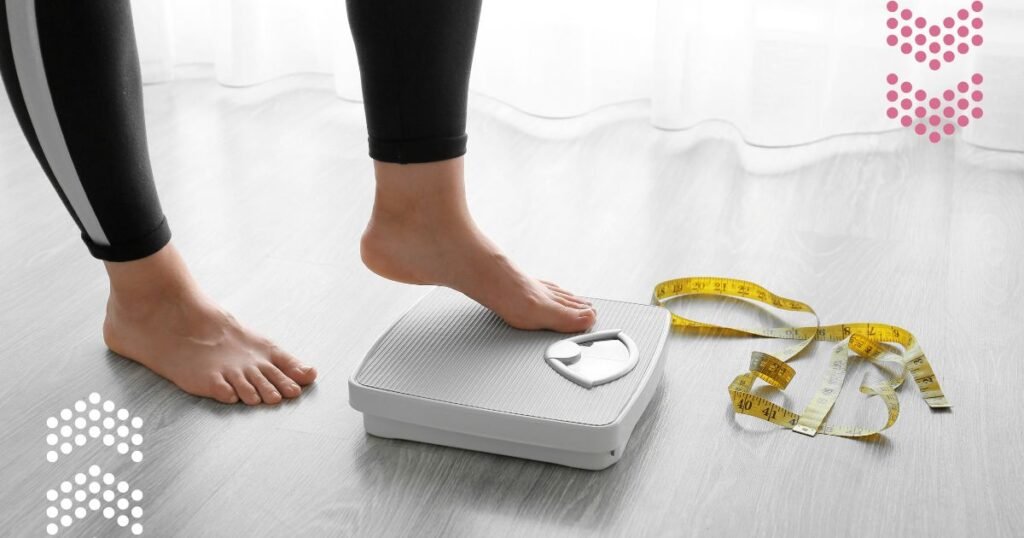Why Sleep Deprivation in New Mothers Can Stall Weight Loss Efforts
New mothers face various challenges when trying to lose weight, and one of the biggest obstacles is sleep deprivation. While many understand that getting enough rest is crucial for energy levels and emotional well-being, fewer realize the impact it can have on weight loss. In this article, we explore the reasons why sleep deprivation can hinder weight loss in new mothers and provide practical strategies to help them manage this issue. By understanding the connection between sleep, metabolism, and hunger, new mothers can take actionable steps to achieve their health goals.
The Impact of Sleep Deprivation on Weight Loss
The Science Behind Sleep and Weight Loss
Sleep is more than just a time for rest; it’s also a critical period when the body regulates essential functions like metabolism, hormone production, and appetite control. When new mothers don’t get enough sleep, these processes are disrupted, which can negatively impact their ability to lose weight. Specifically, the hormones ghrelin and leptin, which regulate hunger and satiety, are thrown out of balance.
Ghrelin, often called the “hunger hormone,” increases when a person is sleep-deprived, leading to heightened feelings of hunger. On the other hand, leptin, the hormone responsible for signaling fullness, decreases, making it harder for new mothers to feel satisfied after eating. This imbalance often leads to overeating, which can prevent weight loss despite efforts to eat healthily. Furthermore, research shows that sleep deprivation can make people crave high-calorie, sugary, and fatty foods, which are detrimental to long-term weight loss goals.
How Sleep Deprivation Slows Metabolism
In addition to disrupting hunger hormones, sleep deprivation can also slow down the body’s metabolism. A slower metabolism means that the body burns fewer calories throughout the day, making it harder to lose weight even when eating a calorie-controlled diet. For new mothers, whose bodies are still adjusting after pregnancy, a sluggish metabolism can significantly delay postpartum weight loss.
When the body doesn’t get enough rest, it goes into survival mode, conserving energy and storing more fat. This makes weight loss more difficult, as the body is prioritizing fat storage over fat burning. Over time, this can lead to stubborn fat deposits, especially around the abdominal area, which are hard to shed without adequate sleep.
Hormonal Changes After Childbirth and Sleep Deprivation
Postpartum Hormonal Imbalance
The postpartum period is characterized by significant hormonal fluctuations that can impact both mood and physical well-being. After childbirth, many women experience a drop in estrogen and progesterone levels, which can influence how the body stores fat. This hormonal shift is natural but can be exacerbated by sleep deprivation.
One of the most significant hormonal changes is an increase in cortisol, the body’s primary stress hormone. High cortisol levels are linked to weight gain, particularly in the abdominal area. Sleep deprivation further increases cortisol levels, leading to more fat storage and making weight loss more challenging for new mothers.
Additionally, lack of sleep can interfere with the body’s ability to regulate insulin, the hormone responsible for controlling blood sugar levels. Poor insulin regulation can lead to insulin resistance, which makes it harder for the body to process carbohydrates effectively. Over time, this can contribute to weight gain and even increase the risk of developing type 2 diabetes.
Insulin Sensitivity and Sleep Deprivation
When sleep is disrupted, the body’s ability to manage blood sugar levels becomes impaired. Insulin sensitivity, which refers to how well the body responds to insulin, decreases with poor sleep. As a result, new mothers may find it harder to process sugars and carbohydrates, leading to weight gain. Sleep deprivation not only affects how the body stores fat but also raises the risk of insulin resistance, which can have long-term health consequences if left unchecked.
For new mothers struggling with weight retention, it is essential to prioritize sleep to improve insulin sensitivity and prevent these complications. By managing blood sugar levels effectively, mothers can also prevent cravings for sugary foods that further hinder weight loss efforts.
Increased Hunger and Cravings Due to Sleep Loss
The Role of Ghrelin and Leptin
The disruption of hunger-related hormones is one of the most immediate effects of sleep deprivation. Ghrelin, the hormone that signals hunger, increases when a person is sleep-deprived, while leptin, the hormone that signals fullness, decreases. This hormonal imbalance makes it difficult for new mothers to manage their hunger and control their food intake.
New mothers who are sleep-deprived are more likely to reach for quick, high-calorie foods that provide immediate energy but contribute to weight gain. These types of foods, which are often rich in sugar and fat, not only hinder weight loss but also lead to a cycle of cravings and overeating.
Emotional Eating and Sleep Deprivation
Emotional eating is another consequence of sleep deprivation. When people are tired, they often turn to food for comfort and to boost energy levels. For new mothers dealing with the physical and emotional demands of caring for a newborn, this emotional eating can become a significant obstacle to weight loss.
Lack of sleep also lowers a person’s ability to make mindful, healthy eating choices. This can lead to poor food decisions, such as eating late at night or snacking excessively on junk food. Emotional eating combined with sleep deprivation creates a vicious cycle that is difficult to break and can severely stall postpartum weight loss efforts.
The Role of Physical Activity and Sleep
How Sleep Impacts Exercise Performance
Getting enough sleep is vital for physical recovery and optimal exercise performance. For new mothers who are already facing fatigue from caring for their baby, lack of sleep further reduces the energy available for physical activity. This can make it harder to engage in regular exercise, which is crucial for weight loss and overall health.
Sleep deprivation also impairs muscle recovery, which means new mothers may experience more soreness and fatigue after working out. Over time, this can reduce the frequency and intensity of exercise sessions, making it harder to achieve fitness goals. Without proper recovery, the benefits of exercise are diminished, slowing the progress of postpartum weight loss.
The Vicious Cycle: Lack of Sleep, Low Energy, and Lack of Exercise
The connection between sleep deprivation and low energy levels creates a cycle that is hard to break. New mothers who are tired from lack of sleep often have little motivation to exercise, and without exercise, weight loss stalls. This leads to frustration, making it even harder to find the energy to work out.
Breaking this cycle is essential for new mothers who want to lose weight. Prioritizing sleep helps restore energy levels, making it easier to engage in regular physical activity. Regular exercise, in turn, helps improve sleep quality, creating a positive feedback loop that supports weight loss.
Strategies for New Mothers to Improve Sleep and Support Weight Loss
Establishing a Sleep Routine
Creating a consistent sleep schedule is one of the most effective ways to improve sleep quality. New mothers should aim to go to bed and wake up at the same time every day, even on weekends. While it may be difficult to maintain this routine with a newborn, small efforts to establish a routine can make a big difference over time.
It’s also important to create a sleep-friendly environment by minimizing distractions, keeping the room dark, and avoiding screen time before bed. These habits can help new mothers fall asleep faster and enjoy better-quality rest.
Napping When the Baby Sleeps
For new mothers, it can be helpful to nap when the baby sleeps. Even short naps can help reduce sleep debt and improve overall energy levels. Although it’s tempting to use this time to catch up on household chores, resting is a better investment in long-term health and weight loss goals.
Family members and partners can also support new mothers by helping with the baby’s care, allowing for more opportunities to rest. Sharing responsibilities ensures that the mother has time to recover and recharge.
Mindfulness and Stress Management
Mindfulness techniques, such as deep breathing, meditation, and yoga, can be beneficial for new mothers looking to reduce stress and improve sleep. These practices help lower cortisol levels, which reduces the body’s tendency to store fat. In addition, stress management plays a crucial role in weight loss, as high stress often leads to overeating and poor food choices.
Dietary Adjustments to Combat Sleep Deprivation
Foods That Promote Better Sleep
Diet plays a significant role in sleep quality. Certain foods, such as those rich in tryptophan, magnesium, and melatonin, can promote better sleep. Foods like almonds, bananas, and turkey are excellent choices for new mothers who are struggling with sleep. Additionally, consuming herbal teas like chamomile can help relax the body and prepare for rest.
On the other hand, new mothers should avoid caffeine, sugary foods, and heavy meals close to bedtime. These substances can interfere with sleep quality and make it harder to fall asleep.
Balanced Nutrition to Counteract Sleep Deprivation
It’s also essential for new mothers to maintain a balanced diet to combat the effects of sleep deprivation. Focus on nutrient-dense foods like whole grains, lean proteins, and healthy fats that provide sustained energy throughout the day. This helps reduce the need for quick fixes like sugary snacks, which contribute to weight gain.
In addition to promoting better energy levels, a balanced diet helps regulate blood sugar, reducing the likelihood of cravings caused by sleep deprivation. With the right combination of foods, new mothers can support their weight loss goals while managing the physical demands of caring for a newborn.
The Importance of Self-Compassion During Postpartum Weight Loss
Adjusting Expectations
It’s important for new mothers to be patient with themselves as they navigate postpartum recovery. Weight loss after pregnancy is a gradual process, and it’s important to focus on long-term health rather than quick results. Setting realistic expectations can help prevent feelings of frustration or failure.
Many new mothers struggle with comparing themselves to others, especially when bombarded with images of women who seem to bounce back quickly after pregnancy. However, each person’s body is different, and focusing on steady progress is key to achieving sustainable weight loss.
Focusing on Overall Health, Not Just Weight Loss
While weight loss is often the goal, it’s important to remember that overall health is just as crucial. Improved sleep, increased energy levels, and reduced stress are all positive outcomes that contribute to a healthier body. By celebrating non-scale victories, such as how clothes fit or increased strength, new mothers can stay motivated throughout their postpartum journey.
Conclusion
Sleep deprivation can significantly stall weight loss efforts in new mothers by disrupting hunger hormones, slowing metabolism, and reducing energy levels for exercise. By prioritizing sleep, managing stress, and maintaining a balanced diet, new mothers can overcome these challenges and work toward their health goals. Small changes in sleep routines and mindfulness can have a lasting impact on both physical and mental well-being.
For more insights on how to manage postpartum weight retention, explore our blog where we offer a range of resources designed to help women achieve their fitness and weight loss goals. ShapioX is committed to supporting women of all ages through a variety of tools and programs, including women-only weight loss resources, a fitness shop, and expert advice on balancing health after pregnancy.
Learn more about weight loss strategies or get expert advice on healthy dieting to enhance your postpartum recovery.


